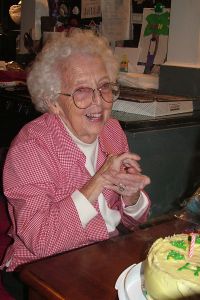At The Brod Law Firm, we are proud to serve as lawyers for victims of nursing home abuse in Sacramento. The elderly can be a very vulnerable population and Sacramento elder abuse can go unrecognized because some older individuals are unable to report the incidents or are unconsidered unreliable because of dementia. We are proud to serve as attorneys for individuals who fall victim to these abuses and work closely with concerned family members to represent their interests.
Abuse and neglect are all too common, but it is important to remember that the nature of even well-run elder care facilities can create health concerns. On Tuesday, The Sacramento Bee reported that public health authorities were tracking an outbreak of the norovirus in senior care environments. The virus has been confirmed in three skilled nursing and assisted living facilities, is suspected to be the culprit in at least four other locations and is believed to have caused at least 174 residents and staff to fall ill. Norovirus cause a range of gastro-intestinal ailments and, especially in the medically vulnerable elderly population, can lead to dangerous dehydration. At one facility, 15 out of 85 residents are reported to have fallen ill from the highly contagious bug.
Norovirus itself cannot be treated but symptoms can be managed with palliative care, including rehydration where necessary. The disease is spread very easily and is particularly likely to spread in close quarters like cruise ships, schools, and nursing facilities. There are several strategies that can prevent norovirus and other contagious diseases from spreading. Hand-washing can be very effective in limiting the spread of illness, although it is often not done properly. The Center for Disease Control recommends that hands be vigorously rubbed with soap and water for a minimum of twenty seconds, noting that mentally singing “Happy Birthday” twice can help ensure hands are washed for a sufficient time. Since norovirus often originates in contaminated food, proper food-handling techniques are also key. Fruits and vegetables should be thoroughly washed and infected individuals should not be involved in food preparation. Cleaning and disinfecting surfaces and laundering clothing and bedding can also help prevent norovirus from spreading.
 San Francisco Injury Lawyer Blog
San Francisco Injury Lawyer Blog


 Nursing homes must adhere to the standard of care when providing services to their patients. For instance, a nursing home must implement and educate its staff about proper procedures for preventing or following-up on a fall incident in the nursing home. These procedures must measure up to the standard protocol implemented by other nursing homes under similar circumstances.
Nursing homes must adhere to the standard of care when providing services to their patients. For instance, a nursing home must implement and educate its staff about proper procedures for preventing or following-up on a fall incident in the nursing home. These procedures must measure up to the standard protocol implemented by other nursing homes under similar circumstances. Our
Our